▼ UDAN: Ude Desh Ka Aam Naagrik scheme launched [04-28-17]
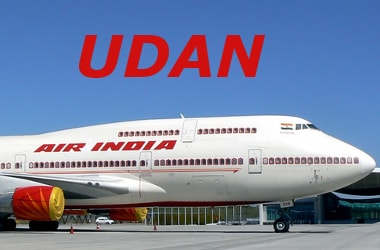 Prime Minister Narendra Modi has launched the UDAN (Ude Desh Ka Aam Nagrik) scheme from Jubbarhatti, an airport on the outskirts of Shimla. Prime Minister Narendra Modi has launched the UDAN (Ude Desh Ka Aam Nagrik) scheme from Jubbarhatti, an airport on the outskirts of Shimla.
‘Ude Desh Ka Aam Nagrik’ means ‘the common man flies’.
He flagged of the first UDAN flight under Regional Connectivity Scheme (RCS) on Shimla-Delhi sector. UDAN flights on Kadapa–Hyderabad, and Nanded-Hyderabad sectors were also flagged off.
Around 45 unserved and under-served airports are set to be connected under UDAN scheme to make flying more affordable.
The airports to be connected under UDAN include Bhatinda, Bhavnagar, Durgapur, Jaisalmer, Puducherry, and Shimla.
Under this scheme, five operators will operate flights services on 128 routes that will connect 70 airports through 19-78 seater aircrafts. The operators are Air India subsidiary Airline Allied Services, Air Deccan, Air Odisha, Turbo Megha, and Spice Jet.
As per the modalities of the scheme, airfare for a one-hour journey of 500 km has been capped at an all-inclusive charge of Rs. 2,500.
For longer routes and flight duration, the pricing will vary.
The scheme is expected to have positive effects on the economy in terms of employment and investment.
The scheme will also promote tourism and balanced regional growth.
UDAN: Know More
- The ‘Ude Desh ka Aam Naagrik’ RCS (Regional Connectivity Scheme) was launched in October 2016.
It is considered as a vital component of the National Civil Aviation Policy (NCAP). - The policy was released on June 15, 2016.
The scheme has been launched to provide connectivity to un-served and under-served airports of the country through revival of existing air-strips and airports. - This is first of its kind scheme and will be implemented for a period of 10 years.
- As of now, 128 routes have been identified and declared in the RCS map of India.
|
▼ UDAY: India's first double decker AC rail [04-26-17]
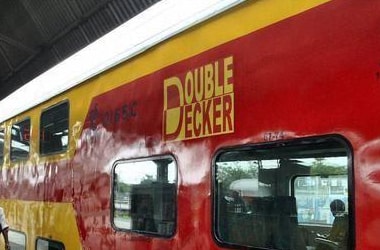 The Indian Railways will be launching a special rail service, Utkrisht Double-Decker AC Yatri (Uday) Express in July 2017. The Indian Railways will be launching a special rail service, Utkrisht Double-Decker AC Yatri (Uday) Express in July 2017.
The over-night train would ply only on high-demand routes like Delhi- Lucknow and its fare would be lower than that of the 3AC class in regular express trains.
The aim of the double-decker service is to provide better amenities to passengers in a lesser fare.
The 120- seater AC service would have large automatic vending machines in each coach, which would dispense pre-cooked hot food and tea/ cold drinks.
The train would also be equipped with large LCD screens in every coach along with wi- fi speaker system.
It would also be equipped with bio-toilets. Its interior would sport an aesthetically designed modern look.
The introduction of the service will help the public transporter clear the rush in high demand routes, as the train would have 40 per cent more carrying capacity in comparison to other trains.
However, in spite of being an overnight train, it would not have sleeper berths but it would though have added facilities such as comfortable seats and adequate leg space to ensure travellers a comfortable and smooth journey.
The service, announced in rail budget 2016-17, is slated to run at a speed of 110 km speed per hour on high-density routes.
|
▼ Model APMC act drafted [04-26-17]
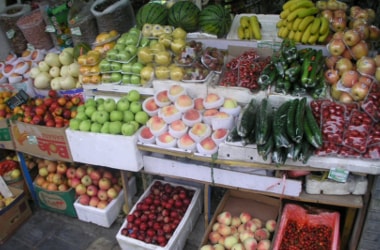 To give farmers more freedom to sell their produce, the agriculture ministry has unveiled a model Agricultural Produce Market Committee (APMC) Act which defines each state/UT as a single unified market area. To give farmers more freedom to sell their produce, the agriculture ministry has unveiled a model Agricultural Produce Market Committee (APMC) Act which defines each state/UT as a single unified market area.
The move will curb the role of APMC mandis.
The State/UT Agricultural Produce and Livestocks Marketing (promotion and facilitation) Act, 2017, which is being sent to states for adoption.
This allows existing APMC mandis to enforce regulation only in their market yard which would allow private sector players to set up mandis.
|
▼ Uttarakhand Forest Department uses drones for forest fires, in a first [04-25-17]
 In a first, the Uttarakhand Forest Department has deployed three drones for real-time monitoring of the forest fires. In a first, the Uttarakhand Forest Department has deployed three drones for real-time monitoring of the forest fires.
This is the first time that drones are used to monitor forest fires in India.
Besides monitoring of forest fire, drones are already in use for wildlife conservation for nest status, aviation ethology, crocodile and water birds counting and monitoring.
Uttarakhand faces maximum incidents of forest fires. In 2016, about 2,000 incidents of forest fires destroyed 4,500 hectares of forest land in Uttarakhand.
Uttarakhand has about 71% of the total geographical area under forest cover. Thus, real time monitoring of forest fires will help in preventing the spread of forest fire.
Though, the Forest Department employs both traditional method and modern methods with the help of satellite images, it is difficult to know about the forest fire in the Terai and Bhabar regions.
The Terai region consists of fertile lowlands of the southern Himalayan, Shivalik foothills and north of Indo-Gangetic plains and the Bhabar region runs parallel to the north side of Terai.
Uttarakhand is known for human-induced forest fires since a long time.
In 2016, the pine forests of Uttarakhand and Himachal Pradesh caught fire.
Most of the fires in Uttarakhand happen in the Chir pine (Pinus Rroxburghii) forests because leaves of this conifer tree catch fire easily.
The forest fires in Uttarakhand have been predominantly intentional for the purpose of collection of forest resources such as resin, sal seeds, honey, timber and more.
|
▼ Now an Aadhaar for cows! [04-25-17]
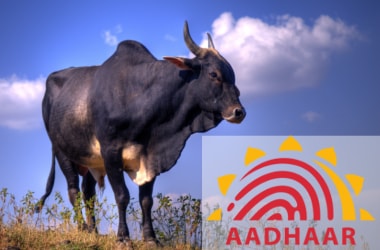 All cows, their calves, oxen and bulls in the country will be tagged with a tamper-proof Unique Identification Number (UIN) to stop their smuggling. All cows, their calves, oxen and bulls in the country will be tagged with a tamper-proof Unique Identification Number (UIN) to stop their smuggling.
Informing the court about the decision which was in the works since the NDA government took office in 2014, solicitor general Ranjit Kumar informed the bench of Chief Justice J S Khehar and Justice D Y Chandrachud
Each animal will be tagged with a UIN with proper records of identification details - age, breed, sex, lactation, height, body colour, horn type, tail switch and special marks."
The ministry of agriculture has devised a method of tamper-proof identification of cattle using polyurethane tags with a UIN sequence. It may be made mandatory for cows and their progeny throughout India.
Already mass tagging of cattle for insurance purpose is being done by livestock development boards and animal husbandry departments in states.
A state-level data bank may be uploaded on website to be linked with the national online database.
Such cattle may be in a dairy, kanji house (shelter home) or dry dairy and a registration card has to be maintained by the owner of the cattle which may be transferred to the next owner, in case legitimate sale/transfer takes place.
In order to prevent smuggling of non-milking/retired cattle, measures may be taken to create sustainable housing models, dry dairies, in every block, which could be self-sustaining by linking its operations to production of manure and bio-gas, which may be sold at a minimum support price to the government.
This will reduce use of chemical fertilisers in agriculture.
Centre also gave details of the causes behind large-scale cattle smuggling to Bangladesh.
It said in West Bengal alone, 1,28,440 cattle were impounded by BSF accounting for 76% of seized cattle in 2016. Assam with 33,619 seized cattle came second in the list.
|
▼ Now, apply online for passports in Hindi [04-24-17]
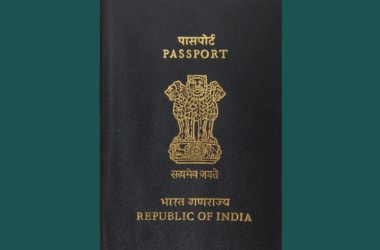 The Ministry of External Affairs has made a provision enabling people to apply online for passports in Hindi. The Ministry of External Affairs has made a provision enabling people to apply online for passports in Hindi.
The move comes after President Pranab Mukherjee recently accepted recommendations made in this regard by the Committee of Parliament on Official Language via its ninth report.
The report was submitted in 2011.
The panel had suggested that bilingual forms should be made available by all passport offices and forms filled in Hindi should also be accepted.
It had recommended that entries should also be made in Hindi in all passports being issued.
These recommendations have been accepted by the president recently, as per an official order.
People can download the application form available in Hindi, fill it in and upload it while applying for the passport.
The printout of filled-in form will not be accepted by 'Passport Seva Kendra' and Regional Passport Offices.
The panel on the official language had also recommended that information regarding passport and visa should be made available in Hindi on the official website of the ministry.
The recommendation that the facility of working in Hindi is to be ensured on computers being used in passport offices, and that the work on computers should be done mainly in Hindi, has also been accepted.
The president has given approval for creation of posts of Hindi Officer in subordinate offices or embassies abroad.
|
▼ India Post launches coffee scented stamps! [04-24-17]
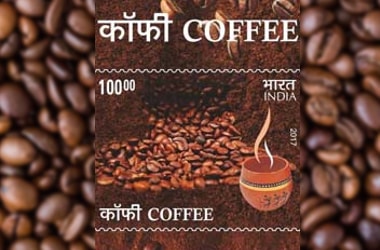 At an event organised by the India Post, commerce and industry minister Nirmala Seetharaman and telecom minister Manoj Sinha released the coffee scented stamps at the General Post Office in Bengaluru on 23rd April, 2017. At an event organised by the India Post, commerce and industry minister Nirmala Seetharaman and telecom minister Manoj Sinha released the coffee scented stamps at the General Post Office in Bengaluru on 23rd April, 2017.
The stamps, which are being printed at the India Security Press, will be priced at INR 100. Already, one lakh stamps have been printed for sale to collectors.
These stamps will be made available at the Philately Bureau, Bangalore General Post Office, and all other head post offices.
Bhutan was the first country to release aromatic stamps in 1973.
New Zealand, Thailand and Switzerland joined in later.
In 2006, India introduced its first aromatic stamp, with INR 15 sandalwood-scented stamp where 30 lakh of these sold out within two weeks.
In 2007, rose-scented stamps were released in four varieties of flower namely Jawahar, Neelam, Delhi Princess and Bhim, each priced at INR 5 and a jasmine fragrance in 2008.
|
▼ MoU signed between India and South Korea [04-24-17]
A MoU has been signed between India and South Korea for defence industry cooperation in shipbuilding.
Under the MoU, the two countries would recommend the organisations for collaborating in the implementation of specific projects.
The MoUs signed will be valid for a time period of 5 years and are automatically extendable for further successive five years at a time.
While South Korea is yet to name its recommended organisation, India has nominated Hindustan Shipyard Ltd (HSL), Visakhapatnam for the collaboration.
HSL and the nominated shipyard by South Korea will find and develop indigenous sources for the supply of majority of the material and equipment for the construction of the warship.
HSL has already teamed with Hyundai Heavy Industries to build five fleet support ships and two strategic operating vessels.
In addition to the above project, Kangnam Corporation of South Korea is slated to provide consultancy, design and technological assistance to India’s state-owned Goa Shipyard Limited in building 12 mine countermeasures vessels.
The cooperation is part of the ‘Make in India’ policy.
|
▼ Ministry of Food and Consumer Affairs approves guidelines on fair trade practices [04-24-17]
Ministry of Food and Consumer Affairs has approved the ‘Guidelines on Fair Trade Practices Related to Charging of Service Charge from Consumers by Hotels and Restaurants’.
As a part of the guidelines which has been issued in public interest to protect the rights of consumers, Service charge on hotel and restaurant bills is “totally voluntary”, adding that mandatory levy of service charge amounts to unfair trade practice.
As per the guidelines, Hotels and restaurants cannot decide on service charge and the column of service charge will be left blank in the bill for the customers to fill up before making payment.
The guidelines have also stated that in a case of mandatory levy of service charge, customers can file a complaint in the Consumer Court.
However, at present, stringent action cannot be taken against the erring hotels as the current Consumer Protection Act, 1986 does not empower the ministry to do so.
But, under the new Consumer Protection Bill, an authority is expected to be set up with powers to take such actions.
The Department of Consumer Affairs has justified the guidelines in view of complaints received by it from consumers that some hotels are insisting payment of service charge in the range of 5-20 per cent and many people are paying it believing that it is part of taxes.
As per the guidelines, a component of service is already inherent in the provision of food and beverages ordered by a customer.
Hence, the price of food and beverages is expected to cover both goods and service components. HRAWI’s Response
The Hotel and Restaurant Association of Western India (HRAWI) has not welcomed the guidelines by saying that levying of service charge is a global practice and a legitimate tax, adding that it has been in India for more than half a century.
|
▼ Quality Mark Award Scheme for Milk quality [04-24-17]
As part of the innovative initiatives under the “White Revolution” umbrella Schemes, the Department of Animal Husbandry, Dairying and Fisheries has supported the National Dairy Development Board(NDDB) developed initiative of “Quality Mark” Award Scheme.
This is for dairy Cooperatives to promote and encourage enhancement of safety, quality and hygiene of milk and milk products manufactured by dairy cooperatives.
It is aimed at bringing about process improvement in the entire value chain from producer to the consumer to ensure availability of safe and quality of milk and products both for the domestic and foreign market.
The “Quality Mark” Award Scheme for dairy Cooperatives in the country has been initiated to instil confidence in the consumers for the quality of milk being marketed by them by ensuring availability of safe and good quality milk and milk products.
The quality mark scheme was rolled out on 6th January-2016 after deliberating on the process and award mechanism for over a year.
The initiative does not propose any new/ additional system for Food Safety and Quality Management but lays down minimum standards against each link of the processes required for ensuring quality and safety.
|
▼ Puducherry launches e-office software programme [04-20-17]
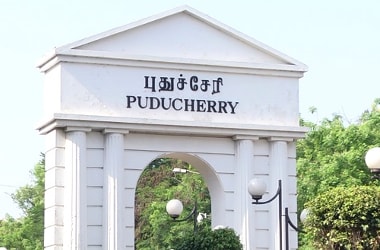 The Puducherry government has evolved a detailed plan to implement e-office software in keeping with the e-governance plan of the nation. The Puducherry government has evolved a detailed plan to implement e-office software in keeping with the e-governance plan of the nation.
This software has been developed by the NIC or National Informatics Centre and would be implemented in 5 departments of the Puducherry administration including the Secretariat.
E-governance is for ushering in a more effective, efficient and transparent inter government transactions and processes.
Hands-on training would be imparted to around 250 officers from various departments on implementation of the e-office process.
The innovative system is also aimed at ensuring paperless, efficient and transparent governance.
The territorial government had also proposed to establish free Wi-Fi connectivity in 14 government-run colleges in the Union Territory, using funds under Rashtriya Uchchatar Shiksha Abhiyan (RUSA) scheme.
Government had also asked telecom service providers to provide free Wi-Fi services under their corporate social responsibility (CSR) scheme, in public places.
Railtel Corporation of India had come forward to provide free Wi-Fi at the Legislative Assembly and also at the local Railway station.
JIPMER and Indira Gandhi Government Medical College and Research Institute (a State government-sponsored medical college)- would be connected with educational institutions across the country through high speed data communication network under the National Knowledge Network (NKN).
|
▼ 18 bills passed by LS, RS in Budget Session 2017 [04-20-17]
The Payment of Wages (Amendment) Bill, 2017 - The Payment of Wages (Amendment) Bill, 2017 was introduced in Lok Sabha on Feb 3, 2017 by the Minister of Labour and Employment, Shri. Bandaru Dattatreya. The Bill amends the Payment of Wages Act, 1936.
- The Human Immunodeficiency Virus and Acquired Immune Deficiency Syndrome (Prevention and Control) Bill, 2014 was introduced in the Rajya Sabha on Feb 11, 2014 by the Minister for Health and Family Welfare, Shri. Ghulam Nabi Azad. The Bill seeks to prevent and control the spread of HIV and AIDS.
- The Employee’s Compensation (Amendment) Bill, 2016 was introduced in Lok Sabha on August 5, 2016 by the Minister for Labour and Employment, Shri. Bandaru Dattatreya.
- The Bill amends the Employee’s Compensation Act, 1923. The Act provides payment of compensation to employees and their dependants in the case of injury by industrial accidents, including occupational diseases.
- The Mental Health Care Bill, 2013 was introduced in the Rajya Sabha on August 19, 2013. The Bill repeals the Mental Health Act, 1987. The new Bill was introduced as the existing Act does not adequately protect the rights of persons with mental illness nor promote their access to mental health care.
- The Maternity Benefit (Amendment) Bill, 2016 provides maternity leave up to 12 weeks for all women. The Bill extends this period to 26 weeks. However, a woman with two or more children will be entitled to 12 weeks of maternity leave.
- The Constitution (Scheduled Castes) Order (Amendment) Bill, 2017 was introduced in Lok Sabha on March 10, 2017 by the Minister of Social Justice and Empowerment, Shri. Thawar Chand Gehlot. It was passed by Lok Sabha on March 23, 2017. The Bill amends the Constitution (Scheduled Castes) Order, 1950 and the Constitution (Pondicherry) Scheduled Castes Order, 1964.
- The Enemy Property (Amendment and Validation) Bill, 2016 amends the Enemy Property Act, 1968, to vest all rights, titles and interests over enemy property in the Custodian. It declares transfer of enemy property by the enemy, conducted under the Act, to be void. This applies retrospectively to transfers that have occurred before or after 1968. Civil courts cannot entertain dispute cases of enemy property.
- Finance Bill 2017 introduced in Feb 2017 in the LS replaced tribunals and legislation and made Aadhaar mandatory for PAN and IT.
- GST reform's supporting legislations include IGST, CGST, UTGST, and Compensation Act. These were passed on Apr 6 2017 by RS and March by the LS. Bills provides for the levy of Union Territory Goods and Services Tax/Central Goods and Services Tax/ State Goods and Services Tax on the supply of goods and services within the boundary of UT/Centre/State. A compensation act was also passed.
- The Specified Bank Notes (Cessation of Liabilities) Bill, 2017 was introduced in Lok Sabha on February 3, 2017 replacing the Specified Bank Notes (Cessation of Liabilities) Ordinance, 2016 promulgated on December 30, 2016. Specified bank notes (INR 500 and 1000 old notes) ceased to be liabilities of the RBI w.e.f Dec 31, 2016 post demonetisation. The notes will no longer be guaranteed by Union Government following demonetisation on Nov 8, 2016 through notification as per RBI Act 1934.
|
▼ Maternity Benefit Amendment Bill 2016 extends maternity leave [04-20-17]
- Maternity leave has been extended to 26 weeks for two time mothers.The Act provides maternity leave up to 12 weeks for all women. The Bill extends this period to 26 weeks. However, a woman with two or more children will be entitled to 12 weeks of maternity leave.
- The Bill requires every establishment with 50 or more employees to provide for crèche facilities within a prescribed distance.
- An employer may permit a woman to work from home, if the nature of work assigned permits her to do so. This may be mutually agreed upon by the employer and the woman.
- The Bill requires an establishment to inform a woman of all benefits that would be available under the Bill, at the time of her appointment.
- Such information must be provided in writing and electronic form.
- The period of maternity leave will be calculated from the date the child is handed over to the adoptive or commissioning mother.
|
▼ Mental Healthcare Bill 2016 decriminalizes suicide [04-20-17]
The Mental Health Care Bill, 2013 was introduced in the Rajya Sabha on August 19, 2013. This Bill repeals the Mental Health Act, 1987.
Key Features - Every person shall have the right to access mental health care and treatment from services run or funded by the government.
- The right to access mental health care includes affordable, good quality of and easy access to services.
- Persons with mental illness also have the right to equality of treatment, protection from inhuman and degrading treatment, free legal services, access to their medical records, and complain regarding deficiencies in provision of mental health care.
- A mentally-ill person shall have the right to make an advance directive that states how he wants to be treated for the illness during a mental health situation and who his nominated representative shall be.
- Central and State Mental Health Authority are required to (a) register, supervise and maintain a register of all mental health establishments,(b) develop quality and service provision norms for such establishments, (c) maintain a register of mental health professionals.
- Mental Health Establishments: Every mental health establishment has to be registered with the relevant Central or State Mental Health Authority after meeting certain criteria in the bill.
|
▼ Landmark HIV prevention and control legislation approved [04-20-17]
The Human Immunodeficiency Virus and Acquired Immune Deficiency Syndrome (Prevention and Control) Bill, 2014 was introduced in the Rajya Sabha on February 11, 2014.
It was set forth by the Minister for Health and Family Welfare.
The Bill seeks to prevent and control the spread of HIV and AIDS, prohibits discrimination against persons with HIV and AIDS, provides for informed consent and confidentiality with regard to their treatment.
It also places obligations on establishments to safeguard their rights, and creates mechanisms for redressing their complaints.
Prohibition of discrimination against HIV positive persons:
The Bill lists the various grounds on which discrimination against HIV positive persons and those living with them is prohibited.
These include the denial, termination, discontinuation or unfair treatment of:
(i) employment,
(ii) education,
(iii) health care services,
(iv) residing or renting property,
(v) standing for public or private office, and
(vi) provision of insurance (unless based on actuarial studies).
The requirement for HIV testing as a pre-requisite for obtaining employment or accessing health care or education is also prohibited.
Every HIV infected or affected person below the age of 18 years has the right to reside in a shared households.
HIV (Prevention and Control) Bill: Know More - Current Status: Passed
- Ministry: Health and Family Welfare
- Introduction: Feb 11, 2014
- Lok Sabha: Apr 11, 2017
- Rajya Sabha: Mar 21, 2017
|
▼ Payment of Wages bill passed [04-20-17]
The Payment of Wages (Amendment) Bill, 2017 was introduced in Lok Sabha on Feb 3, 2017 by the Minister of Labour and Employment.
The Bill amends the Payment of Wages Act, 1936.
The Bill replaces the Payment of Wages Ordinance, 2016 which was promulgated on December 28, 2016.
As per the 1936 Act, all wages must be paid either in coin or currency notes, or both.
However, the employer may pay his employee’s wages either by cheque or by crediting it into his bank account, after obtaining his written authorisation.
The Bill amends the 1936 Act to permit the employer to pay an employee’s wages:
(i) in coin or currency notes; or
(ii) by cheque; or
(iii) by crediting them into his bank account.
The Bill removes the requirement of obtaining written authorisation for payment of wages by cheque or through a bank account.
However, the relevant central or state government may specify certain industrial or other establishments where the employer should pay his employees by cheque or crediting into account.
|
▼ GST tax reform; supportive legislations passed [04-20-17]
A. Union Territory Goods and Services Tax Bill, 2017
Bill provides for the levy of Union Territory Goods and Services Tax on the supply of goods and services within the boundary of the UT.
The tax rates of the UTGST will be recommended by the GST Council– this rate will not exceed 20 percent.
Centre can exempt certain goods and services from the UTGST through notification based on recommendation of the GST Council.
Officers of Police, Railways, Custom and Land Revenue Collection Officers including Village and Central Tax Officers will help the tax administration to implement the Act.
B. The Integrated Goods and Services Tax Bill, 2017
Bill provides for the levy of IGST by centre on inter-state supply of services and goods.
Centre will levy IGST on the basis of:
a. inter-state supply of goods and services
b. imports and exports
c. supplies to and from SEZ
Supply includes sale, transfer, exchange and lease made to further a business.
Additionally, IGST will be levied on any supply not under the purview of Central and State GST Acts.
IGST will be levied at rate recommended by GST Council and capped at 40%.
Centre will exempt goods and services from IGST through notification based on recommendation of the GST Council.
The IGST revenue obtained by the Union government will be apportioned between centre and state to which supply of services or goods was received.
Collected revenue will be apportioned to the centre to the state where the goods and services supplied were received.
Collected revenue will be apportioned to Union government at tax rate specified in the CGST Act and the rest to the state.
C. The Goods and Services Tax (Compensation to States) Bill, 2017
This bill was introduced in the LS on March 27, 2017.
The bill provides for compensation to states for revenue loss during GST implementation.
Compensation will be provided to the state for 5 years from the date on which the state brings the State GST Act into force.
For calculating the compensation amount in a given financial year, the base year will be assumed to be 2015-2016. Revenue will be projected from this year.
The revenue growth rate for a state during the 5 year period will be assumed to be 14 percent per year.
Base year revenue comprises tax revenue of state from:
a. State value added tax
b. Central state tax
c. Entry Tax
d. OCTROI
e. Local body tax
f. Tax on luxuries
g. Tax on ads etc.
Revenue among these taxes arising for supply of alcohol for consumption by people and certain petrol products will not be part of the base year revenue.
D. The Central Goods and Services Tax Bill, 2017
It was introduced in the LS on March 27, 2017.
Bill provides for levying of CGST.
Centre will levy CGST on supply of goods and services within state boundary. Supplies include sale, transfer and lease made for consideration to move a business further.
The CGST tax rates will be recommended by the GST Council, not exceeding 20 percent. Additionally, the Bill permits taxpayers with a turnover of less than INR 50 lakhs to pay GST at flat rate known as composition levy, rather than value of supply of goods and services.
This rate will be capped at 2.5%.
Centre may exempt certain goods and services from GST purview through notification based on GST Council recommendations.
Liability for paying CGST related to supply of goods and services will be based on one of the two (whichever is earlier):
Issue of invoice
Receipt of payment
CGST will be levied on supply of goods and services where value includes:
a. taxes and duties under different tax lay
b. price paid on supply
c. interest, late fee, penalties for delayed payments
|
▼ Finance Act 2017 makes Aadhaar mandatory, replaces tribunals [04-20-17]
It is compulsory for each person to give their Aadhaar number after July 1, 2017 while applying for PAN or filing IT returns, as per the Finance Act.
Certain tribunals will be replaced, their functioning taken over by current Tribunals under other legislations:
a. Under the Competition Act, 2002, Competition Appellate Tribunal will be replaced by National Company Law Appellate Tribunal under Companies Act 2013.
b. Under the Airport Economic Regulatory Authority of India Act, 2008, Airport Economic Regulatory Authority Appellate Tribunal will be replaced by Telecom Disputes Settlement and Appellate Tribunal under TRAI Act 1997.
c. Under the Information Technology Act 2000, the Cyber Appellate Tribunal is being replaced.
d. Under the Control of National Highways (Land and Traffic) Act 2002, the National Highways Tribunal is being repealed and the Airport Appellate Tribunal under AAI Act 1994 will take its place.
e. The Employees Provident Fund Appellate Tribunal (under the Employees Provident Funds and Miscellaneous Provisions Act 1952) is being taken over by the Industrial Tribunal (under the Industrial Dispute Act 1947)
f. The Employees Provident Fund Appellate Tribunal (under the Employees Provident Funds and Miscellaneous Provisions Act 1952) is being replaced by the Industrial Tribunal (under the Industrial Disputes Act 1947)
g. The Copyright Board (under the Copyright Act, 1957) is being replaced by the Intellectual Property Appellate Board (Under the Trade Marks Act 1999)
h. The Railways Rates Tribunal (under the Railways Act 1989) will be replaced by the Railways Claims Tribunal (under the Railways Claims Tribunal Act, 1987)
I. The Appellate Tribunal for Foreign Exchange (under the FEMA Act 1999) is being replaced by the Appellate Tribunal (under the Smugglers and Foreign Exchange Manipulation [Forfeiture of Property] Act 1976)
|
▼ New policy for common ducts soon [04-19-17]
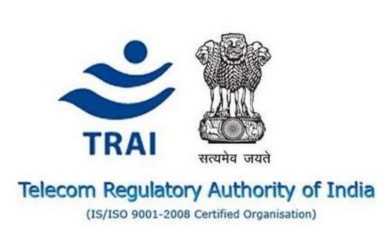 The Centre is likely to soon come out with a new policy under which a common duct will be laid across a city and service providers such as telcos and digital TV players can lease these ducts to pass their fibre through it to offer services to consumers. The Centre is likely to soon come out with a new policy under which a common duct will be laid across a city and service providers such as telcos and digital TV players can lease these ducts to pass their fibre through it to offer services to consumers.
The ‘common duct policy,’ for which Telecom Regulatory Authority of India is carrying out pilots in Deoghar in Jharkhand, could reduce operational cost of firms, remove right of way challenges, while eliminating the need for frequent digging up of roads.
This will also result in additional revenue for the municipalities and remove issues related to right of way.
A common duct will be created for about 20 years. Once the duct is made, no service provider will be allowed to dig the road.
Common infrastructure has a lot of advantages for the concept of common shared infrastructure had dispelled the myth that each service provider must individually own the entire backbone.
|
▼ Telangana legislature passes reservation bill [04-19-17]
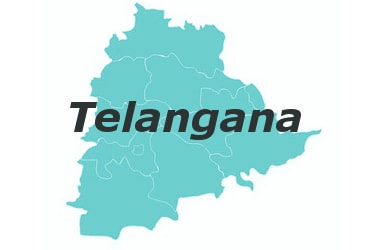 The Telangana legislature has passed the Telangana Backward Classes, Scheduled Castes, Scheduled Tribes (Reservation of Seats in Educational Institutions and of Appointments or Posts in the Services under the State) Bill, 2017, that seeks to raise the reservation for backward Muslims and scheduled tribes. The Telangana legislature has passed the Telangana Backward Classes, Scheduled Castes, Scheduled Tribes (Reservation of Seats in Educational Institutions and of Appointments or Posts in the Services under the State) Bill, 2017, that seeks to raise the reservation for backward Muslims and scheduled tribes.
The Telangana legislature will increase the reservation for socially and educationally backward Muslims from the existing 4% to 12% and for Scheduled Tribes from 6% to 10%.
This is taking the total quotas in government jobs and educational institutions in the state much beyond the 50 % ceiling set by the Supreme Court.
The total quota in the state will now increase to 62%. The bill will now be sent for obtaining President’s assent.
Since the reservation goes beyond the 50% ceiling set by the Supreme Court, the state government wants the centre to include the bill in the 9th schedule of the Constitution which will preclude a judicial review.
States like Tamil Nadu and Jharkhand already have reservations totalling more than 50 percent.
Reservation bills included in 9th Schedule of the Constitution protects it from judicial review. Ninth Schedule contains more than 250 legislations receiving protection from the judicial scrutiny.
|
▼ Manipur CM launches anti-corruption web apps [04-18-17]
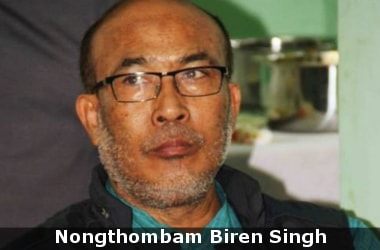 Manipur Chief Minister Nongthombam Biren Singh has launched two web applications to check corruption and keep track of government activities. Manipur Chief Minister Nongthombam Biren Singh has launched two web applications to check corruption and keep track of government activities.
The two web applications were Anti-Corruption Cell and Digital Application for Review by Public And Nation (DARPAN).
The two web applications would monitor all government funded projects and ensure transparency and accountability.
DARPAN would upload details of projects right from the initial stage till sanction of fund, progress of work and photos the work sites
It will stop the corrupt culture of non-completion of developmental projects after release of funds.
Anti-Corruption Cell has received a series of complaints of corruption and that the web applications would augment in the government's efforts to end corruption in the state.
The cases were been registered based on genuine complaints received through to dedicated telephone number.
Manipur: Know More
- Land area: 22,327 km2
- Districts: 16
- Formation: 21 January 1972
- Population: 2.722 million (2011)
- Capitals: Imphal, Guwahati (Judiciary)
|
▼ Railway minister launches Vistadome [04-18-17]
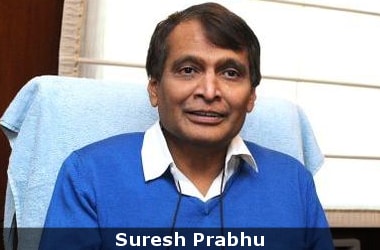 Railway minister Suresh Prabhu launched the dedicated Vistadome tourist coach to the nation through videoconferencing from here. Railway minister Suresh Prabhu launched the dedicated Vistadome tourist coach to the nation through videoconferencing from here.
The coach will be fixed into a train running between Visakhapatnam and Araku (around 115 km) under the East Coast Railway (ECoR) zone.
Vistadome coaches features like glass windows and roof, LED lights, rotatable seats and GPS based info system will offer tourists a panoramic view of the Araku valley not only at the destination but also along the journey.
The coach, manufacturing cost of which is Rs 3.38 crore, has electrically operated automatic sliding compartment doors, wide side door for physically challenged persons, toilets with ceramic tile flooring and walls with all fittings and good food services.
This is a first of its kind in the country to promote local and rural tourism.
Araku valley is internationally famous and the ride from Visakhapatnam to Araku and back is something that tourists from all over India enjoy.
The railway minister also laid foundation stone for mechanised laundry at Visakhapatnam and inaugurated Life Line Express-Sindhudurg of Konkan Railway through videoconferencing at ECoR railway headquarters here.
Mechanised Laundry will significantly improve the quality of linen leading to enhanced passenger satisfaction. It will be installed by September this year at the cost of INR 24.08 crore.
The Life Line Express, medical on wheels, will be a great help to the poor patients. The people can get treatment facility at affordable prices.
|
▼ IR plans dedicated train service [04-18-17]
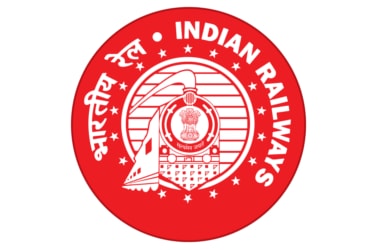 Indian Railways plans a dedicated train service for domestic and international tourists, catering to customers at different income levels. Indian Railways plans a dedicated train service for domestic and international tourists, catering to customers at different income levels.
This is a part draft tourism policy which IR is bringing out for the first time in a bid to increase private partnership in running tourist trains.
A concept of tourist train with differential tariff will be worked out. The train will comprise different classes of accommodation like Sleeper 3A, 2A and 1A coaches, as per demand.
The IR will operate the train on different circuits with normal tariff or with a mark up. Service providers like Indian Railway Catering and Tourism Corporation (IRCTC) will manage other services such as hotel accommodation and sightseeing for domestic and international tourists.
The Railways also proposes to reserve special coaches for tourists on trains running through tourist spots across the country.
It will auction such dedicated tourist coaches to tour operators at a premium based on which the tour operator may carry the passengers/tourists to be booked by it.
An effort will be made to involve private participation in operating more (hill tourist) trains and also to improve the financial conditions in hill railways in general through Public Private Partnership.
There will be ‘Bharat Darshan Trains’ catering “for the masses” with sleeper class coaches.
For promoting religious tourism, the IR proposed introducing Astha Circuit Trains and State Tirth Trains.
While the former will be operated by the IR at its own expense, the latter will be run on request from state governments at their cost.
Indian Railways: Know More
- Headquarters: New Delhi
- Number of employees: 1,331,000
- Founded: 16 April 1853
- Revenue: 1.683 trillion INR (US$25 billion, 2015–2016)
- Divisions: 17 Railways Zones
|
▼ Central Government dismantled finance ministry committee [04-18-17]
The Central government has proposed to dismantle the finance ministry committee which gives approval to PPP projects to speed up the procedural delays and fostering ease of doing business.
NITI Aayog may be given charge of these projects.
The move follows the planned dismantling of the Foreign Investment Promotion Board.
As per the current rules, PPP projects above 1000-Cores are sent to PPPAC and then to the Cabinet for approval.
PPPAC was created in 2006 under the Department of Economic Affairs in the Finance Ministry.
It is comprised of the secretaries of economic affairs, expenditure and legal affairs along with the department sponsoring the project and the NITI Aayog CEO.
|
▼ RUSA app and web portal launched [04-17-17]
The Rashtriya Uchchatar Shiksha Abhiyan (RUSA), under the aegis of the Ministry of Human Resource Development, is set to launch its own portal and mobile app on April 17, 2017.
The portal is a one-stop for States’ Higher Education Plans, decision of the States’ Higher Education Councils and details of the resources under this scheme.
Also, the gallery is a rich repository of the projects initiated under RUSA.
Seventeen RUSA projects will also be launched tomorrow digitally.
They include: - cluster university in Jammu and Kashmir,
- micro ATM facility at the RUSA centre for intelligent systems in Pune University,
- solar power facility in Shree Sankaracharya University of Sanskrit, Kalady, Kerala;
- language laboratories in Ghatsila College, Jharkhand
A Fund and Reform Tracker for this centrally sponsored scheme will also be launched. The mobile application will ensure that all projects under RUSA are tracked 24x7. 29 States and 6 UTs are participating in RUSA. Over 2000 State Universities and Colleges have been supported so far. The National GER prior to the launch of RUSA was 20.8 (2012), with Male GER at 22.1 and Female GER at 19.4. RUSA assistance has been critical in witnessing a growth in the GER. A substantial increase in the National GER has been recorded at 24.5, with male GER at 25.4 and female GER at 23.5 in 2015-16, as per AISHE 2015-16) States are also planning their education outlays in a better way. Prior to the formation of RUSA, 9 State Higher Education Councils were created by an Act of the legislature. The States joined RUSA with a commitment to create State Higher Education Councils within a stipulated time indicated by them. To date, 21 more States/UTs have already created State Higher Education Councils through an executive order and 5 more States have established State Higher Education Councils through an Act of the legislature. Till date, out of 36 States and UTs, 34 States and UTs except Delhi and Lakshadweep have submitted their Higher Education Plan. Each State has to prepare a State Higher Education Plan through a bottom-up approach in consultation with their key stakeholders. RUSA: Know More- RUSA is the Centrally Sponsored Scheme (CSS) of the Department of Higher Education, MHRD
- It aims to provide strategic central funding to State Higher Education Departments and Institutions and achieve the broad objectives of access, equity and excellence.
- The State Higher Education Departments and Institutions undertake certain governance, academic and administrative reforms as a pre-requisite to be entitled for RUSA grants.
- The implementation of RUSA began after May 2014.
|
▼ Operation Clean Money II launched [04-17-17]
The Income Tax department will investigate over 60,000 individuals under the second phase of the 'Operation Clean Money'.
This operation was launched today with an aim to detect black money generation post-demonetisation.
The Central Board of Direct Taxes (CBDT), policy-making body of the department, has detected undisclosed income over INR 9,334 crore between the period of November 9, 2016 till February 28 this year.
Note bans were announced by PM Modi in Nov 2016. More than 60,000 persons, including 1,300 high risk persons, have been identified for investigation into claims of excessive cash sales during the demonetisation period.
More than 6,000 transactions of high value property purchase and 6,600 cases of outward remittances shall be subjected to detailed investigations (under Operation Clean Money II).
Advanced data analytics has been used to identify suspect cash deposits before launching the latest edition of the operation.
As part of the first phase of the 'Operation Clean Money', launched on January 31 this year, the department had sent online queries and investigated 17.92 lakh persons out of which 9.46 lakh persons have responded to the department.
Under Operation Clean Money, the initial communication to the 60,000 will be via online queries.
Tax officials will also undertake searches and surveys and seek physical documents from the assessee.
It will also probe government or public sector employees who made “large cash deposits” as well as people who made high-value purchases, “layered” or laundered funds by using shell companies and who did not respond to queries under the first phase of the operation.
|
▼ Adarana scheme relaunched in AP [04-14-17]
 Chief Minister N. Chandrababu Naidu announced the re-launch of ‘Adarana’, a scheme for improving traditional occupations. Chief Minister N. Chandrababu Naidu announced the re-launch of ‘Adarana’, a scheme for improving traditional occupations.
On the 191st birth anniversary of social reformer Mahatma Jyotirao Phule, being celebrated for the first time as a State function, modern tools, technology, marketing, and financial support would be extended to artisans and those pursuing traditional occupations to raise their income levels and provide employment in the rural areas.
Modernising was necessary for goldsmiths, carpenters, weavers, blacksmiths, and potters, among others.
‘Adarana’ had been launched with this objective during the TDP rule earlier.
Top priority was being given to employment and education.
Financial assistance under ‘NTR Unnata and Videsi Vidyadarana’.
BC study circles were imparting coaching for competitive examinations and the unemployed who could not afford coaching were being sent to the best institutions, he said.
While an assistance of INR 2.5 lakh was given for those preparing for all-India services, INR 30,000 was given for Group II, and INR 20,000 and 19,000 respectively for bank POs and clerks.
The TDP Government had allocated INR 25,000 crore for the welfare of the BCs during the last three years and INR 10,000 crore during the year for BC welfare and development.
|
▼ Govt forms panel to study virtual currencies [04-14-17]
 The government has formed a panel to study the existing framework for virtual currencies such as bitcoin. The government has formed a panel to study the existing framework for virtual currencies such as bitcoin.
Dinesh Sharma, special secretary in the economic affairs department will chair the nine-member inter-disciplinary committee.
The committee has been tasked to submit its report within three months.
Circulation of virtual currencies which are also known as digital/crypto Currencies has been a cause of concern.
Reserve Bank of India had also cautioned the users, holders and traders of virtual currencies (VCs), including bitcoins, about the potential financial, operational, legal, customer protection and security related risks that they are exposing themselves to vide its press releases dated 24 December, 2013 and February 1, 2017.
The panel will also have representatives from department of economic affairs, department of financial services, department of revenue, home ministry, IT ministry, Reserve Bank of India, NITI Aayog and State Bank of India.
The committee will take stock of the present status of virtual currencies both in India and globally, examine existing global regulatory and legal structures governing them, suggest measures on consumer protection, money laundering etc; and examine any other relevant matter related to virtual currencies.
|
▼ WB approves loan for India's first waterway project [04-14-17]
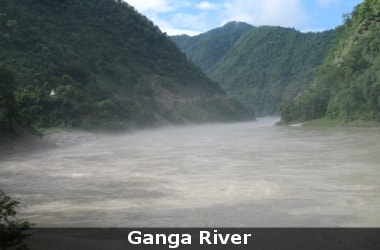 The World Bank has approved a $375 million loan to India’s first waterway project. The World Bank has approved a $375 million loan to India’s first waterway project.
The National Waterway 1 project is to create a water transport fairway on a 1,360-km stretch of the Ganga river between Varanasi and Haldia.
NW1 passes through one of India’s most densely populated areas, and a sizeable 40 per cent of the country’s traded goods either originate from this resource-rich region or are destined for its teeming markets.
While the region generates about 370 million tonnes of freight annually, only about 5 million tonnes currently travels by water.
The project will help build the infrastructure needed to develop water transportation in the area. It will finance the construction of six multi-modal terminals, 10 RORO jetties, ship-repair facilities as well as passenger jetties along the river.
It will also help modernise the ageing Farakka lock and add a new lock to allow for smoother passage of boats.
The project will also help the Inland Waterways Authority of India acquire a state-of-the-art River Information System as well as navigation aids to make travel on the river safer and more reliable.
The project will also support the design and development of a new fleet of low-draft barges capable of carrying up to 2,000 tonnes of cargo in these shallower depth
The US$375 million loan from the International Bank for Reconstruction and Development (IBRD) has a 7-year grace period and a maturity of 17 years.
|
▼ HIV-AIDS Prevention and Control Bill 2017 passed by LS [04-13-17]
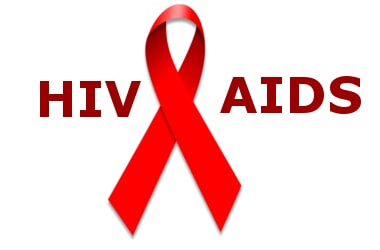 The Human Immunodeficiency Virus (HIV) and Acquired Immune Deficiency Syndrome (AIDS)(Prevention and Control) Bill, 2017 has finally been passed in the Lok Sabha on 11th April, 2017. The Human Immunodeficiency Virus (HIV) and Acquired Immune Deficiency Syndrome (AIDS)(Prevention and Control) Bill, 2017 has finally been passed in the Lok Sabha on 11th April, 2017.
The bill was introduced to help strengthen the rights of the people who have been suffering from HIV or AIDS.
India has the third largest HIV epidemic in the world.
In 2015, there were about 2.1 million people infected and living with this disease which has not found a potential cure or preventive measure yet.
Despite the change in time and advancement, HIV and AIDS are still considered as a taboo in India and therefore, this new bill brings a fresh lease of hope and respite.
The Bill makes antiretroviral treatment a legal right of HIV/AIDS patients.
It also mentions all the several grounds on which discrimination against HIV and AIDS patients is prohibited and the rights that they can enjoy.
Anyone who does not adhere to these may have to face civil as well as criminal proceedings.
Features of the HIV-AIDS Prevention and Control Bill
- The legislation prohibits discrimination against people living with, and affected by, HIV in terms of employment, admission in educational institutions education and renting a property as well as with holding of public or private office, access to insurance and the freedom of movement.
- It strictly bans unfair treatment given to people living with and affected by HIV when it comes to accessing public facilities, such as shops, restaurants, hotels, public entertainment venues, public facilities and burial grounds.
- Most importantly, the bill ensures that equal rights are given to the people affected by HIV and AIDS in getting treatment and access to good health care.
- The Bill prohibits individuals from publishing information or advocating feelings of hatred against those who are HIV positive and even those who are living with them.
- The Bill has made adequate provisions to help people living with HIV or AIDS to safeguard their property rights. Every person above the age of 18 has the right to reside in a shared household and enjoy all the facilities.
- Further, no HIV test, medical treatment or research can be conducted on a person without his informed consent and no person shall be compelled to disclose his or her HIV status without their informed consent, and if required, by a court order.
- Every person in the care and custody of the State has the right to HIV prevention, testing, treatment and counselling services. The State and Central government will also facilitate access to welfare schemes especially for women and children.
- The Bill indicates that all cases related to HIV positive persons should be given priority and resolved duly ensuring confidentiality of all matters.
This bill is the first of its kind to be passed in South Asia. According to UN SDG, the aim is to end the epidemic by 2030. This is the first ever law of such kind to have been passed in South Asia. According to the Sustainable Development Goals set by the United Nations, the aim is to end the epidemic by 2030. In 2015, estimated 2.1 million people living with HIV in India. The rate of new HIV infections have dropped by 67 per cent from 2.5 lakhs to 85,000. AIDS related deaths have declined to 54 per cent, which is more than the global average. India runs the second largest Antiretroviral Therapy programme There are 22,000 HIV testing centres in the country, which have conducted over 2.9 crore HIV tests, including 1.3 crore for pregnant women. Previously, the HIV/AIDS Bill was passed by the Rajya Sabha on March 21. SDGs: Know More- The Sustainable Development Goals (SDGs), officially known as Transforming our world: the 2030 Agenda for Sustainable Development.
- This is a set of 17 "Global Goals" with 169 targets between them.
- Led by the United Nations through a deliberative process involving its 193 Member State.
- It is also led as well as global civil society, the goals are contained in paragraph 54 United Nations Resolution A/RES/70/1 of 25 September 2015.
- The Resolution is a broader intergovernmental agreement that acts as the Post 2015 Development Agenda (successor to the Millennium Development Goals).
- The SDGs build on the Principles agreed upon under Resolution A/RES/66/288, popularly known as The Future We Want.
|
▼ Motor Vehicles Amendment Bill 2016 passed by LS [04-12-17]
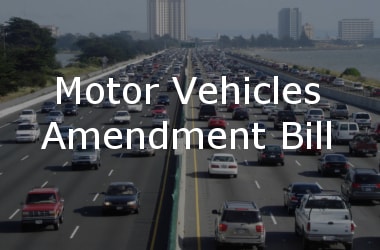 India has moved forward for safety legislation with the Lok Sabha passing the Motor Vehicles (Amendment) Bill, 2016. India has moved forward for safety legislation with the Lok Sabha passing the Motor Vehicles (Amendment) Bill, 2016.
The changes are significant as they will, for the first time, acknowledge the fundamental reordering of mobility with the introduction of laws recognizing app-based taxi operators.
A bill to unleash radical reforms in the transport sector by ensuring 100 per cent e-governance, checking bogus driving licenses and vehicle thefts, slapping heavy penalty on traffic violators and protecting the good samaritan was approved by the Lok Sabha on April 10.
In a first, the new Motor Vehicles (Amendment) Bill will allow the government to modify or amend any norm for the better application of rules.
The bill focuses on improved citizen centric services, reducing the number of accidents and steps to reduce work load on regional transport offices.
The bill also proposes hefty penalties for various traffic offences, three-year jail term for parents of minors caught driving and causing fatal accidents, and a ten-fold increase in compensation for the families of accident victims, among other things.
The Bill not only clearly defines guidelines for the taxi aggregators but also lists for–amending the existing categories of driver licensing, recall of vehicles in case of defects, protection of good samaritans from any civil or criminal action, and increase of penalties for several offences under the 1988 Act.
Another focus is e-Governance.
Enabling online learning licenses, increasing validity period for driving licenses, and doing away with the educational eligibility criteria for licenses are some of the features of the Bill.
On March 31, in 2016, the union cabinet approved the changes in the Motor Vehicles Act.
The bill introduced in Parliament last year had proposed 89 clauses for amendment out of which only 57 were accepted by the Parliament Standing Committee on Transport.
The Bill amends the Motor Vehicles Act, 1988 to address issues such as third party insurance, regulation of taxi aggregators and road safety.
Under the Act, the liability of the third party insurer for motor vehicle accidents is unlimited.
The amendment caps the maximum liability for third party insurance in case of a motor accident at INR 10 lakh in case of death and at five lakh rupees in case of grievous injury.
However, the Bill does not cap the compensation amount that courts can award. The Bill provides for a Motor Vehicle Accident Fund, which would provide compulsory insurance cover to all road users in India for certain types of accidents.
It defines taxi aggregators, guidelines for which will be determined by the Union Government.
Bill also provides for protection of good samaritans from any civil or criminal action, and increase of penalties for several offences under the 1988 Act.
|
▼ Constitution (123rd) Amendment Bill 2017 passed by LS [04-12-17]
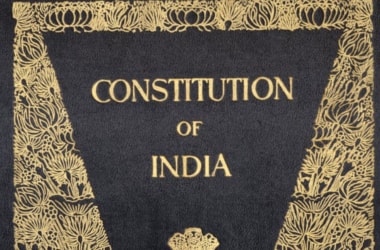 The Lok Sabha on 10 April 2017 passed the Constitution (One Hundred and Twenty-Third Amendment) Bill, 2017. The Lok Sabha on 10 April 2017 passed the Constitution (One Hundred and Twenty-Third Amendment) Bill, 2017.
The Bill was passed by the house with 360 MPs voting in favour and 2 against the bill.
It seeks to give constitutional status to the National Commission for Backward Classes. The Bill seeks to insert a new Article 338B in the Constitution
The Article provides for the National Commission for Backward Classes, its composition, mandate, functions and various officers.
The Bill also seeks to insert a new Article 342-A, which empowers the President to notify the list of socially and educationally backward classes of a state/union territory.
In case of a state, President will make such notification after consultation with the Governor.
Under the new Article 342-A, the Parliament, by making a law, can include or exclude the classes from the central list of backward classes.
NCB: Know More
- The National Commission for Backward Classes is an Indian statutory body under the Union Ministry of Social Justice and Empowerment.
- It was established on 14 August 1993.
- It was constituted pursuant to the provisions of the National Commission for Backward Classes Act, 1993.
- 1990, Indra Sawhney & Ors. Vs. Union of India and Ors., reported in (1992) Supp. 3 SCC 217, directed the Government of India for a permanent body in the nature of a Commission or Tribunal.
- It was for entertaining, examining and recommending upon requests for inclusion and complaints of over-inclusion and under-inclusion in the list of OBCs.
- At present, the Commission is responsible to look into the inclusion and exclusion of backward classes only.
|
▼ MP starts Deendayal Rasoi Yojana [04-11-17]
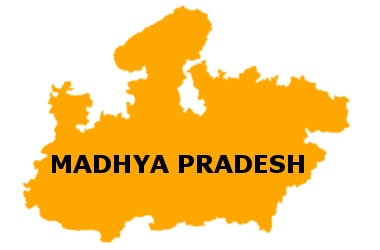 Madhya Pradesh government started its ambitious ‘Deendayal Rasoi Yojana’ under which subsidised meals will be available at INR 5 per plate to people, especially the economically disadvantaged sections of society. Madhya Pradesh government started its ambitious ‘Deendayal Rasoi Yojana’ under which subsidised meals will be available at INR 5 per plate to people, especially the economically disadvantaged sections of society.
The initiative is on the lines of state run Amma Canteens, started by the former chief minister J Jayalalithaa, which served subsidised food at low prices.
Chief minister Shivraj Singh Chouhan inaugurated the scheme at Gwalior while in Bhopal mayor Alok Sharma inaugurated the scheme.
2017 was the birth centenary year of Pandit Deendayal Upadhyaya.
In Bhopal, NGO Ghan Shyam Sewa Samiti will prepare food for average of 1500 to 2000 people daily in the Deendayal Rasoi set up near Sultania Hospital.
Deendayal Rasoi Yojana had been initiated keeping in mind the adequate arrangement for food along with housing for the poor working as labourers and in other trades as per the wish of chief minister.
In the first phase, the scheme would be inaugurated in 49 district headquarters on April 7 simultaneously between 6 to 7pm.
The scheme will be launched in Bhind and Umaria district later on due to by-elections.
In every district headquarter; Deendayal Rasoi Yojana will be implemented in at least one place. More than one centre would be set up in the big cities as per need.
Funds for setting up the Deendayal Rasois would be made available under chief minister’s urban infrastructure scheme.
An account would be opened for every centre at a nationalized bank of the local headquarters, she added.
|
▼ MIS for PMKSY launched [04-10-17]
Union Minister for Water Resources, River Development and Ganga Rejuvenation Sushri Uma Bharti launched MIS for monitoring PMKSY project in New Delhi on 8th April 2017.
MIS will help in quick monitoring of PMKSY projects. Expressing satisfaction over the execution of various PMKSY projects the Minister said that 21 projects having irrigation potential of 5.22 Lakh hectare will be over by June this year.
Another 33 projects will be over by 2017-18 (Potential Utilization of 12.95 Lakh Hect.) and the balance 45 projects have been identified to be completed by March, 2019 (Potential Utilization of 48.54 Lakh Ha.).
Polavaram Project has been put on a fast track when completed this project is likely to irrigate 2.9 lakh ha.
Maharashtra has undertaken innovative means such as installation of underground pressure pipelines to get over the difficulties of land acquisition for timely completion of these projects.
Under the new MIS, Projectwise nodal officers have been nominated for regularly feeding the physical and financial progress of the projects.
The MIS has been put in the public domain. Project wise/ Priority wise /Statewise physical/financial details in tabular/graphical format are available in MIS.
It has the feature of comparing the progress of the project on quarterly basis and also provides details of the constraints affecting the progress of the project.
PMKSY Projects: Know More - The Ministry of Water Resources, River Development and Ganga Rejuvenation has taken up a programme for completion of 99 prioritised incomplete major and medium irrigation projects in the country under PMKSY.
- Total fund required for completion of all the 99 identified projects have been estimated at INR.77595 crore (INR.48546 crore for Project Works and INR.29049 crore for Command Area Development works).
- The Central Assistance (CA) is estimated at INR.31342 crore. The likely total potential utilization through these projects is estimated to be 76.03 lakh hectares.
- During 2016-17, Central Assistance (CA) of INR 3308 crore was released for projects under AIBP and INR 854 crore for projects under CAD&WM.
- Further, an amount of INR 3334 crore towards State share has been released through NABARD, for six States.
An amount of INR 2514 crore has been released for Polavaram project of Andhra Pradesh.
|
▼ Maha bill to protect journos from attacks approved [04-10-17]
Maharashtra Cabinet approves draft Bill on law seeking to prevent attacks on journalists
It proposes to increase the punishment to five years of imprisonment, from the current three years.
Maharashtra Cabinet approves draft Bill on law seeking to prevent attacks on journalists
The Maharashtra Cabinet on April 6, 2017 approved a draft Bill on the law that seeks to prevent attacks on journalists.
The Journalist Protection Draft Bill was introduced in the Assembly on April 9 by Chief Minister Devendra Fadnavis.
The Bill proposes to amend the provisions of the Indian Penal Code and Code of Criminal Procedure Act that is aimed at providing protection to government employees from being attacked while on duty.
The Bill seeks to increase the punishment for attacking public servants to up to five years of imprisonment from the current three years, and making it a cognisable and non-bailable offence.
There have been more than 17,682 attacks on government officials on duty in the last six years. In the last four years, four media houses and 337 journalists have been attacked.
The public servants were attacked by corrupt contractors and members of the sand mafia.
Maharashtra government on April 9, 2017 passed an act in the Assembly to prevent attacks on journalists and media houses.
The act was passed without any discussion in the Assembly.
The act has recommended up to three years imprisonment or fine up to INR 50,000 or both for the offenders. The act has also made a provision for punishing a media person for misusing the law.
The offender shall be liable to pay compensation for damage or loss caused to the property of media person or media institution as determined by the court.
He shall be liable to reimburse medical expenditure incurred by the media person, the act said.
However, if media person wilfully misuses the provisions of the act or uses the same for malicious purposes or makes a false complaint under this act; he or she shall be punishable with imprisonment which may extend to three years or with fine which may extend to INR 50,000 or both.
The media person after conviction shall not be entitled to any government benefit and his or her accreditation card if any shall be permanently revoked, the act said.
|
▼ LS passes Taxation laws (Amendment) Bill 2017 [04-7-17]
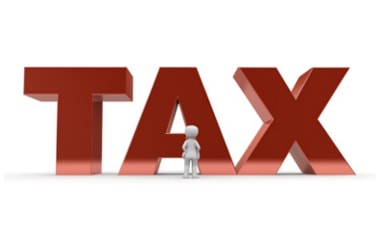 The Lok Sabha on April 6, 2017 passed a bill which will ensure continuance of levy of excise on petroleum products and abolition of cess on some other items following GST rollout from July 1. The Lok Sabha on April 6, 2017 passed a bill which will ensure continuance of levy of excise on petroleum products and abolition of cess on some other items following GST rollout from July 1.
The Taxation Laws (Amendment) Bill, 2017 seeks to amend the Customs Act, 1962, the Customs Tariff Act, 1975, the Central Excise Act, 1944, the Finance Act, 2001 and the Finance Act, 2005.
Moving the bill which was passed later by the House by a voice vote, Minister of State for Finance Santosh Gangwar said the amendments in these laws were necessary because after the roll out of GST on July 1, only a few items would remain under these Acts.
After the rollout of the GST, central excise duty on goods other than crude oil, petrol, diesel, ATF and natural gas, service tax on taxable services and VAT on sale or purchase of goods will be subsumed in the new indirect tax regime.
The bill seeks to include 'warehouse' in the definition of customs area to ensure that an importer is not asked to pay Integrated Goods and Services Tax (IGST) at the time of removal of goods from a customs station to a warehouse.
The proposed bill also seeks to abolish the cess levied on water consumed by certain industries and by local authorities under the Water (prevention and Control of Pollution) Cess Act, 1977.
|
▼ 4 lane bridge to come up on River Ganga [04-7-17]
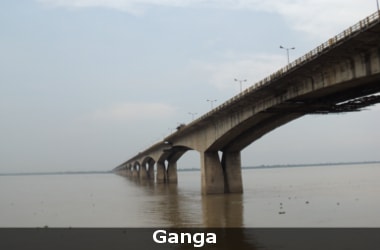 Prime Minister, Shri Narendra Modi, on April 6, 2017 launched development projects at Sahebganj in Jharkhand. Prime Minister, Shri Narendra Modi, on April 6, 2017 launched development projects at Sahebganj in Jharkhand.
He laid the Foundation Stone of a 4-lane bridge over the River Ganga, and a multi-modal terminal.
The multi-modal terminal is an important component of the development of the National-Waterway 1 from Varanasi to Haldia.
The Prime Minister inaugurated the 311 kilometre Govindpur-Jamtara-Dumka-Sahebganj highway; and dedicated to the nation, a solar power facility at Sahebganj District Court Premises and Sahebganj District Hospital.
Ganges/Ganga: Know More
- Length: 2,525 km
- Mouth: Ganges Delta
- Basin: 1,080,000 km2 (416,990 sq mi)
- Sources: Gangotri Glacier, Nanda Kot, Satopanth Glacier, Kedarnath, Nanda Devi, Kamet, Trisul
- Cities: Varanasi, Haridwar, Allahabad, Kolkata, Patna, Kanpur, Ghazipur
- Important Bridges: Mahatma Gandhi Setu, Lakshman Jhula
|
▼ Cabinet approves independent rail regulatory agency [04-6-17]
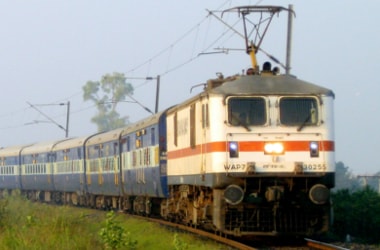 The Union Cabinet approved a proposal on April 5, 2017 for setting up an independent regulatory agency for railways which will recommend revision of tariffs. The Union Cabinet approved a proposal on April 5, 2017 for setting up an independent regulatory agency for railways which will recommend revision of tariffs.
This is intended to depoliticise the revision of passenger fares.
After merging the railway budget with the Union Budget, the move is seen as another step in reforming the state-run transporter.
It also aims at making the process of revision of both passenger and freight fares transparent.
The regulator will have only recommendatory powers, but it could pave the way towards revising passenger fares, which are at present highly subsidised.
Freight rates are likely to come down as the cost is likely to be balanced against higher passenger fares, officials said. S
The regulator will lay down principles and rules for determining tariff in passenger and freight segments in a transparent manner.
The regulator will also ensure fair play and a level playing field for private or foreign players.
Private investment in the railways has been low be cause of uncertainties and frequent policy changes.
The regulator will also lay down standards for efficiency and performance which will lead to customer satisfaction in both passenger and freight services.
The authority will also be mandated to check deviations, if any , from the laid-down performance standards and suggest remedial measures which will empower customers -both passengers and freight operators.
The authority will also suggest guidelines for determining track access charge which will ensure better utilisation of dedicated freight corridors.
Railway Regulatory Agency: Know More
- The authority, to be set up by August 1 this year, will have a chairman and three members and can engage experts from different areas.
- The government chose the executive order route to ensure setting up of the regulator at the earliest, said an official.
- The independence of the regulator will be ensured through a separate budget and a stringent appointment and removal process for the chairman and members.
- The appointment will be done by the Centre from the panel of names recommended by the search-and-selection committee headed by the cabinet secretary and the rail board chairman, DoPT secretary and chairman of any other regulatory agency nominated by the cabinet secretary as members.
- The chairman and members will have a tenure of five years and can be removed by the Centre on grounds such as insolvency , conviction, misbehaviour, physical and mental incapability.
|
▼ Food through post in Jharkhand [04-5-17]
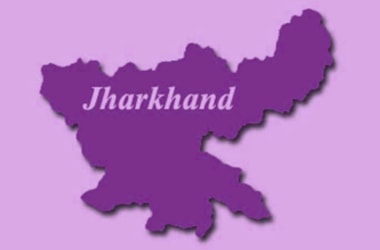 The Jharkhand state government launched its ambitious food post scheme. The Jharkhand state government launched its ambitious food post scheme.
It is first of its kind in India whereby 70,000 families of particularly vulnerable tribal groups (PVTGs) enrolled under the National Food Security Act (NFSA) would be benefited.
By delivering food through special messengers, the government aims to check malnutrition and hunger deaths among these tribes.
The scheme was started from three blocks including Sundar Pahari (Godda), Chainpur (Palamu) and Barhait (Sahebganj) on Monday. All 24 districts of the state will covered under the scheme by April end.
Population of the PVTGs is dwindling and it is a concern for the state as well as the Centre.
Since they lead a wanderers life in jungles and hills, the NFSA has failed to reach out to them effectively for their benefit.
Block level officials would be engaged as special messengers for the schemes, who would deliver a packet of 35-kg rice to each household.
The delivery boy will carry an Aadhaar enabled POS machine to authenticate the actual delivery.
The scheme will also boost the income of rural women, as government has decided to purchase 35-kg plastic bags from Sakhi Mandal (women self-help groups).
|
▼ Subsidy to mild hybrid vehicles withdrawn [04-5-17]
 The Union Ministry of Heavy Industries and Public Enterprises has withdrawn subsidy given to mild hybrid vehicles under FAME India (Faster Adoption and Manufacturing of Hybrid and Electric vehicles in India) scheme. The Union Ministry of Heavy Industries and Public Enterprises has withdrawn subsidy given to mild hybrid vehicles under FAME India (Faster Adoption and Manufacturing of Hybrid and Electric vehicles in India) scheme.
Earlier, mild hybrid, strong hybrid, plug-in hybrid and pure electric vehicles were given incentives under the FAME India scheme.
Mild Hybrids
- A mild hybrid vehicle has an electric motor, which on its own cannot run a vehicle but assists normal engine by using recovered energy stored in a battery.
- This helps save fue
- It uses the energy generated while applying the brakes and turns it into electric energy which is then stored in a battery.
- This energy can then be used to turn the starter motor when the car’s start stop system needs it.
- Mild-hybrids are 7-15% more fuel efficient as compared to conventional hybrid systems that can run on pure electric power for short distances too.
FAME: Know More
- The FAME India scheme was launched in 2015 under National Electric Mobility Mission Plan (NEMMP).
- It was launched with an aim to promote eco-friendly vehicles in the country.
- It objectives is to provide fiscal and monetary incentives for adoption and market creation of both hybrid and electric technologies vehicles in the country.
- It will also support the hybrid or electric vehicles market development and its manufacturing eco-system in the country in order to achieve self-sustenance in stipulated period.
- It is being administered by the Heavy Industries Ministry.
- It will provide demand incentives to electric and hybrid vehicles from two-wheeler to buses.
|
▼ Rashitriya Vayohsri Yojana launched [04-4-17]
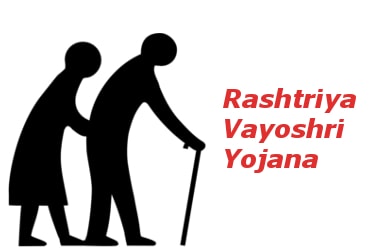 Rashtriya Vayoshri Yojana, a ‘Scheme for providing Physical Aids and Assisted-living Devices for Senior citizens belonging to BPL category’ is launched in District Nellore, Andhra Pradesh. Rashtriya Vayoshri Yojana, a ‘Scheme for providing Physical Aids and Assisted-living Devices for Senior citizens belonging to BPL category’ is launched in District Nellore, Andhra Pradesh.
Physical Aids and Assisted-living Devices for Senior citizens will be distributed in Camp mode and the Scheme will be implemented through the sole implementing agency,
‘Artificial Limbs Manufacturing Corporation (ALIMCO)’ which will undertake one year free maintenance of the aids & assisted living devices.
The devices will help the Senior Citizens to overcome their age related physical impairment and to lead a dignified and productive life with minimal dependence on care givers or other members of the family.
The ambitious Scheme, first of its kind in the country is expected to benefit 5,20,000 Senior Citizens over a period of the 3 years.
The Scheme aims at providing Senior Citizens, belonging to BPL category and suffering from any of the age related disability/infirmity viz. Low vision, Hearing impairment, Loss of teeth and Locomotor disability, with such assisted-living devices which can restore near normalcy in their bodily functions, overcoming the disability/infirmity manifested.
The assistive devices shall be of high quality and conforming to the standards laid down by the Bureau of Indian Standard.
The proposal for formulation of a Scheme for providing Physical Aids and Assisted-Living Devices for Senior Citizens belonging to BPL Category was announced in the Budget 2015-16.
RVJ: Know More
- The Scheme aims at providing Senior Citizens, belonging to BPL category and suffering from any of the age related disability/infirmity.
- This includes Low vision, Hearing impairment, Loss of teeth and Locomotor disability, with such assisted-living devices which can restore near normalcy in their bodily functions, overcoming the disability/infirmity manifested.
- The assistive devices shall be of high quality and conforming to the standards laid down by the Bureau of Indian Standards, wherever applicable.
|
▼ ILO conventions to be ratified [04-3-17]
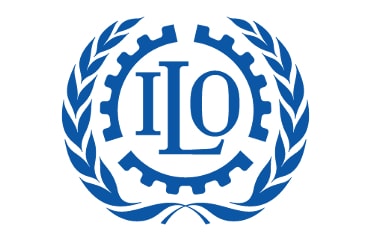 Union Cabinet has approved the ratification of 2 fundamental conventions of the International Labour Organization concerning Child Labour. Union Cabinet has approved the ratification of 2 fundamental conventions of the International Labour Organization concerning Child Labour.
These are the Minimum Age Convention (No. 138) and Worst Forms of Child Labour Convention (No. 182).
These conventions will now be legally binding.
Minimum Age Convention: No 138
This is concerned with the minimum age for admission to employment
It has been ratified by 169 countries so far.
Worst Forms of Child Labour Convention: No 182
It is concerned with the prohibition and immediate action for elimination of the worst forms of Child Labour.
It has been ratified by 180 countries.
For both strategies, GOI has adopted a multi pronged strategy. This includes the project based approach as well as stringent legislative measures to address concerns pertaining to child labour in the nation.
The Child and Adolescent Labour (Prohibition and Regulation) Act, 1986 completely prohibits children employment below 14 years in any occupation or process.
Recent initiatives taken by Government to eradicate child labour also needs to be maintained for elimination of child labour for attainment of Sustainable Development Goals by 2030.
ILO: Know More
- It was established in 1919 as an agency of the League of Nations.
- It is headquartered in Geneva, Switzerland.
- India is a founder member of the ILO.
- Currently, it has 187 members.
- The principal means of action in the ILO is the setting up of International standards in the form of Conventions, Recommendations and Protocol.
- So far India has ratified 45 Conventions, out of which 42 are in force.
- Out of these 4 are Core or Fundamental or Conventions.
|
▼ HP CM announces UJALA Scheme [04-3-17]
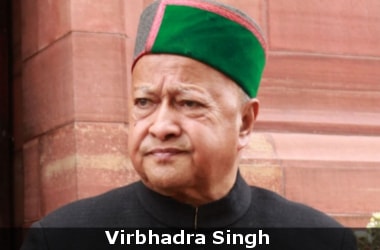 Himachal Pradesh Chief Minister Virbhadra Singh launched a scheme allowing distribution of LED tubelights and energy-efficient fans as part of an initiative to promote energy saving. Himachal Pradesh Chief Minister Virbhadra Singh launched a scheme allowing distribution of LED tubelights and energy-efficient fans as part of an initiative to promote energy saving.
The LED tubelights and fans would be distributed under ‘Unnat Jeevan by Affordable LEDs and Appliances for All’ (UJALA) scheme, which is an extension of old domestic efficient lighting programme.
The cost per tube light would be INR 230 along-with three years free replacement warrantee.
The BEE 5-star 50-watt fan will replace the conventional 75-watt ceiling fan.
It will cost INR 1,150, along with two-years free replacement warranty, thus saving 33 per cent electricity.
The government had earlier launched a scheme to distribute subsidised CFL bulbs and LED lights, which helped in saving energy worth about INR 200 crore and the present initiative is an extension of that scheme.
UJALA was an integral part of energy conservation initiative of the state government and had been very successfully adopted by the people of the state.
|
▼ BHEL Commissions Raichur plant [04-3-17]
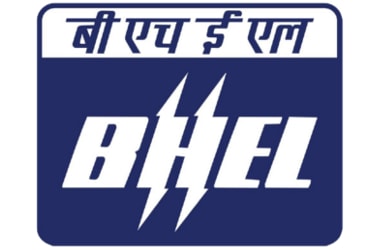 The Bharat Heavy Electricals Limited (BHEL) on 30 March 2017 commissioned an 800 MW supercritical thermal power plant in Raichur District of Karnataka. The Bharat Heavy Electricals Limited (BHEL) on 30 March 2017 commissioned an 800 MW supercritical thermal power plant in Raichur District of Karnataka.
This is the second unit of the 2×800 MW Yeramarus Thermal Power Station, the first unit of which was successfully commissioned in early March 2017.
The plant which was commissioned on 15 March 2017 is also the BHEL’s first 800 MW Supercritical Thermal Power Plant.
The power station is owned and operated by the Raichur Power Corporation Limited (RPCL), which is jointly owned by the Karnataka Power Corporation Ltd. (KPCL) and the BHEL.
BHEL carried out complete design, engineering, manufacture, supply, erection and commissioning of this state-of-the-art supercritical project on turnkey basis.
It has supplied all the critical equipment like boiler, turbine and generators, electrical, key packages of balance of plant, and also carried out the associated civil works.
The major equipment for the project has been manufactured by BHEL at its Haridwar, Trichy, Bhopal, Ranipet, Hyderabad, Jhansi, Thirumayam and Bengaluru plants.
The construction of the plant was undertaken by the company’s Power Sector - Southern Region.
BHEL has supplied and executed 4,010 MW of coal based sets for KPCL and its joint ventures, which accounts for 95 per cent of the utility’s coal-based installed capacity.
It is also presently executing KPCL’s first gas-based combined cycle power project of 370 MW capacity involving a fuel-efficient advanced-class gas turbine at Yelahanka, Bengaluru.
About BHEL
- The company is the market leader in both the subcritical as well as the supercritical segments in the country.
- The company has secured orders for 48 supercritical Steam Generators (SG) and 41 supercritical Steam Turbine Generators (STG) – the highest in the country by any power equipment manufacturer. Of these, 12 SG and STG have already achieved capacity addition.
- BHEL’s contribution of nearly 60% of the total power generated in the country bears testimony to the superlative performance of its equipment.
|
▼ GoI approves INR 25 crores for agro-economic research [04-3-17]
The government approved grants-in-aid of INR 25 crore to agro-economic research centres and units beyond 2016-17.
The amount will be required to continue the grants-in-aid to the existing 15 AERCs/AERUs.
The employees of 12 AERCs and three AERUs situated in different states will be benefited.
This would provide policy oriented Agro Economic Research inputs through field studies and reviewing / monitoring of Flagship programmes of the agriculture and allied sector.
This would lead to better agricultural development policy and programmes which in turn would raise employment potential in both farm and non-farm areas, it said.
It will be reviewed after one year for taking the final decision on the recommendations of the review committee, chaired by S M Jharwal, Chancellor, India Gandhi National Tribal University.
This committee was set up by the Department of Agriculture, Cooperation & Farmers Welfare (DACFW), to review the functioning of AERCs/AERUs.
The review committee has recommended that the AERCs/AERUs must be retained and strengthened and that the present pattern of grant-in-aid to these grass-root research institutions must be continued.
The committee has also made recommendations regarding functioning and improving governance of the AERCs/AERUs.
AER: Know More - The Agro-Economic Research (AER) Scheme is an on-going scheme initiated in 1954-55.
- It is for undertaking research studies on agro-economic problems of the country.
- The Department of Agriculture & Cooperation has set up 15 AERCs/AERUs in different Universities/Institutes with a view to conduct policy oriented research/evaluation studies on topics of interest.
|
▼ Comprehensive powerloom scheme launched [04-3-17]
A three-year Comprehensive Scheme for Powerloom Sector Development was launched by Union Textile Minister Smriti Zubin Irani at Bhiwandi on April 1, 2017 and simultaneously at 47 powerloom centres in the country.
It aims to boost common infrastructure and modernisation of the powerloom sector.
The scheme, with an outlay of INR 487 crore for three years from 2017-2018, has nine major components, including two new ones.
The two new schemes are: Pradhan Mantri Credit Scheme for powerloom weavers and solar energy scheme for powerlooms.
Existing powerloom units, new ones, and group enterprises in weaving will now get 20 % of project cost with a ceiling of INR 1 lakh as margin money subsidy and 6% interest subvention, both for working capital and term loan up to INR 10 lakh for a maximum period of five years.
Powerloom units with maximum eight looms each will be eligible for 50 % subsidy for going in for solar energy for captive use, be it on grid or off grid system.
Funds made available for upgradation of plain powerlooms, establishing yarn banks, and group workshed scheme have been increased and the minimum number of looms needed for group workshed scheme has been brought down to 24 from 48.
Some of these existing schemes such as yarn bank and insitu upgradation of plain powerlooms have huge response already and these have been modified to benefit more weavers.
A helpline was introduced for weavers to get details of the scheme.
|
| Chronology of events |
|
Haryana government will provide one-time grant of Rs 21,000 to all those families whose third girl child was born after August 24, 2015, under the Aapki Beti, Hamari Beti scheme.
|
|
Haryana Government has decided to provide one-time grant of INR 21,000 to all those families whose third girl child was born on or after August 24, 2015 under the ‘Aapki Beti, Hamari Beti’ scheme.
|
|
Madhya Pradesh government has launched ‘MP e-nagarpalika’ mobile application to provide various municipal services online. The app will offer 378 services like online payment of property tax, birth/ marriage/death certificates, building permission etc. It will also register complaints.
|
|
The Ministry of Human Resource Development (MHRD) along with the Ministries of Rural Development and Panchayati Raj has agreed to link all Higher Education Institutes (HEIs) with rural development processes under Unnat Bharat Abhiyan (UBA).
|
|
The Bengaluru Police have launched 51 ‘Pink Hoysalas’, the new patrol vehicles, to address complaints related to women and child safety. The Pink Hoysalas will function based on complaints registered through the Suraksha App or intimation to the police control room number and will have at least three women police personnel. The city police currently have 221 regular Hoysalas.
|
|
Parliament has passed the Constitution (Scheduled Castes) Order (Amendment) Bill 2017 after it was passed by Rajya Sabha. It was already passed by Lok Sabha in March 2017. The Bill seeks to amends the Constitution (Scheduled Castes) Order, 1950 and the Constitution (Pondicherry) Scheduled Castes Order, 1964.
|
|
The Union Ministry of Food Processing is going to launch Scheme for Agro-Marine Produce Processing and Development of Agro-Processing Clusters (SAMPADA) for food processing sector.
|
|
The ministry will also launch three new schemes to create infrastructure for improving the entire food supply chain. These three schemes are ‘Creation/ Expansion of Food Processing and Preservation Capacities’, ‘New Agro-Processing Clusters‘ and ‘Backward and Forward Linkages’.
|
|
The Union Government has set up an ‘Inter- Ministerial Monitoring-cum-Coordination Committee’ to monitor the UDAN (Ude Desh Ka Aam Naagrik) scheme.
|
|
Uttar Pradesh government on 11 April 2017 scrapped the Samajwadi Pension Scheme, which was initiated by the previous Akhilesh Yadav government.
|
|
Similar to that of Uttar Pradesh’s ‘anti-romeo squad’, the Haryana government has launched ‘Operation Durga’ to ensure women safety in the state.
|
|
Jharkhand Police has initiated Tare Zameen Par programme to enlighten children in Naxal-affected areas in the Palamau district of Jharkhand.
|
|
The Union Ministry of Labour & Employment has launched Aadhaar Seeding Application for efficient service delivery and widening the reach of Employees Provident Fund (EPF) benefits.
|
|
Operation Meghdoot was an Indian armed forces operation launched 33 years ago on 13 April 1984. Its anniversary was recently celebrated.
|
|
The Fiscal Responsibility and Budget Management (FRBM) committee has made recommendations of a fiscal deficit target of 3% by 2020.
|
|
Maharashtra Government on 16 April 2017 announced Advanced Farming – Enriched Farmer scheme. The scheme aims at increasing the income of farmers by cutting production cost and increase in output.
|
|
Madhya Pradesh government today decided to ban plastic/polythene carry bags across the state from May 1 saying that its consumption results in large number of cow deaths.
|
|
The Ministry of Women and Child Development in collaboration with the Ministry of Panchayati Raj has launched a nationwide programme for capacity building of Elected Women Representatives (EWRs) of Panchayats.
|
|
Prime Minister felicitated the descendants of 16 families associated with Paika Rebellion of 1817 and other freedom struggles of Odisha in Bhubaneswar.
|
|
The Andhra Pradesh state government has formulated guidelines for a market intervention exercise to help red chilli farmers in the state who are in a great distress due to the price crash in the market yard.
|
|
The Government has stated that 14 scholarship schemes for Scheduled Castes and Other Backward Classes (OBC) / Denotified, Nomadic and Semi-nomadic Tribes (DNT) students come under Digital Payments Initiatives.
|
|
The State government of West Bengal has introduced the Social Security Yojana by combining five separate beneficiary schemes for workers in the unorganised sectors and for self-employed people.
|
|
The governments of India and South Korea will sign an Memorandum of Understanding (MoU) on 21 April 2017 to strengthen their bilateral cooperation in defence shipbuilding.
|
|
The Reserve Bank of India (RBI) has inked a supervisory cooperation pact with the Royal Monetary Authority of Bhutan for information sharing.
|
|
India and South Korea signed an agreement to firm up bilateral cooperation in defence shipbuilding. Under the MoU, conceived under the umbrella of the special strategic partnership, the two sides will nominate one shipyard each for this purpose.
|
|
Cuba and Morocco has signed an agreement to reestablish diplomatic ties after a gap of 37 years. Morocco cut ties with Havana in 1980 after Cuba recognised Western Sahara as the independent Sahrawi Arab Democratic Republic. Morocco claims the territory as its own.
|
|
Ministry of Food and Consumer Affairs has approved the ‘Guidelines on Fair Trade Practices Related to Charging of Service Charge from Consumers by Hotels and Restaurants’
|
|
Northeast India’s sixth and largest Information Technology (IT) hub was inaugurated to boost employment and e-governance besides to export software technology.
|
|
The hub is set up at a cost of Rs 50 crore. It would help the state to bring famous IT companies of India to set off their business and services taking the facilities of this newly set-up IT hub.
|
|
The Tamil Nadu government has initiated a process to enact a policy on the laundry of ‘infectious’ hospital linen. With the policy, Tamil Nadu will become the first state in the country to have separate guidelines on the issue.
|
|
India is looking at having an all-electric car fleet by 2030 with an express objective of lowering the fuel import bill and running cost of vehicles. Power Minister Goyal is of the view that initially the government can handhold the electric vehicle industry for 2-3 years to help it stabilise.
|